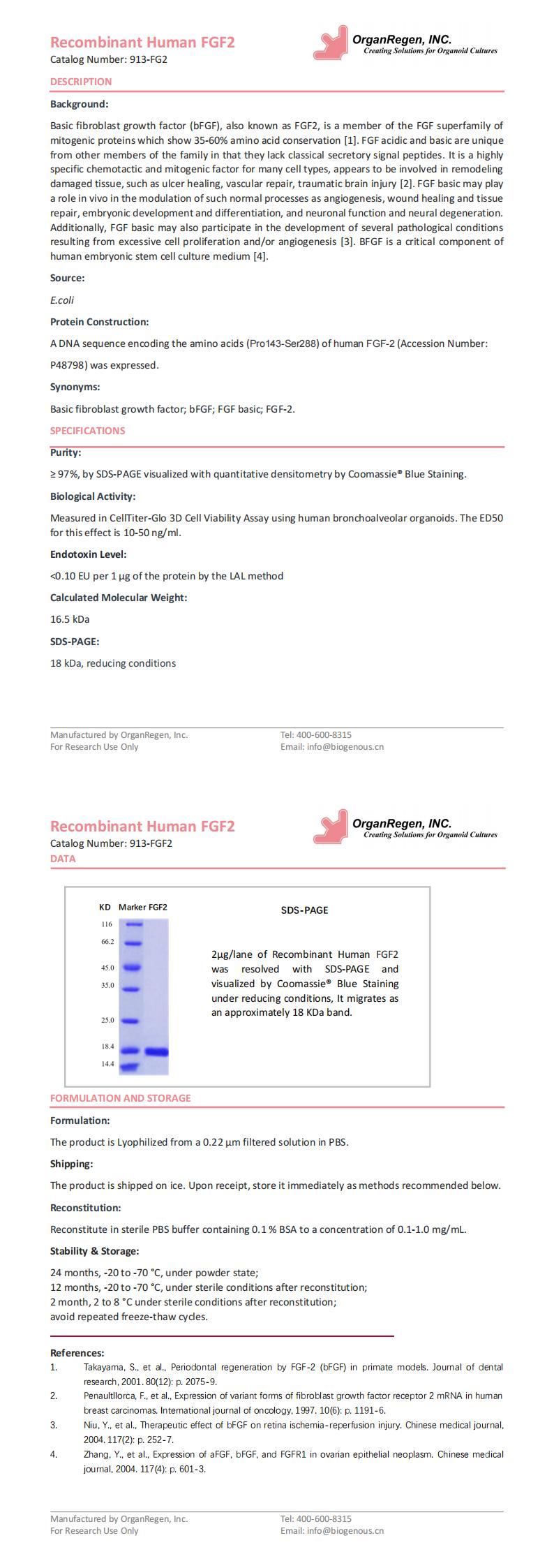Product Introduction
Background:
Basic fibroblast growth factor (bFGF), also known as FGF2, is a member of the FGF superfamily of mitogenic proteins which show 35-60% amino acid conservation [1]. FGF acidic and basic are unique from other members of the family in that they lack classical secretory signal peptides. It is a highly specific chemotactic and mitogenic factor for many cell types, appears to be involved in remodeling damaged tissue, such as ulcer healing, vascular repair, traumatic brain injury [2]. FGF basic may play a role in vivo in the modulation of such normal processes as angiogenesis, wound healing and tissue repair, embryonic development and differentiation, and neuronal function and neural degeneration. Additionally, FGF basic may also participate in the development of several pathological conditions resulting from excessive cell proliferation and/or angiogenesis [3]. BFGF is a critical component of human embryonic stem cell culture medium [4].




